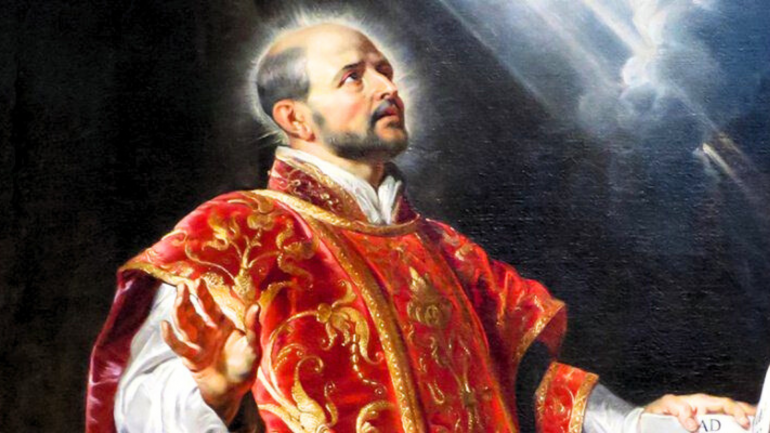Holy Longing: Ignatian Spirituality and the Grace of Desire

I’m often puzzled by why so many people think spirituality means escaping the world. Ignatian spirituality suggests the opposite, that God is most present right here, in the mess and beauty of everyday life.
Saint Ignatius of Loyola, who founded the Society of Jesus and whose feast the Church celebrates on July 21, discovered this truth after a cannonball shattered his leg during battle. While recovering, the former soldier began noticing what was happening inside him when he read different books or imagined different futures. Some thoughts left him feeling drained and empty. Others filled him with energy and peace, even when they involved sacrifice or difficulty.
This simple insight became the foundation of one of Christianity’s most practical spiritual traditions. Ignatius realized that God speaks through our deepest desires and feelings, not despite them. But learning to listen requires practice and patience.
At the heart of Ignatian spirituality lies a radical idea: God can be found in all things. Not just in churches or prayer, but in washing dishes, comforting a friend, or sitting with someone who is grieving. This means your daily life is not separate from your spiritual life; it is your spiritual life.
This kind of attention is not passive observation. Ignatius called it discernment, the art of recognizing which inner movements draw us toward love and life, and which pull us toward selfishness or despair. Think of how some conversations leave you energized while others drain you, or how certain choices bring lasting satisfaction while others leave you restless. Learning to recognize these patterns becomes a form of prayer.
The goal is not perfect decision-making, but becoming free enough to respond generously to what matters most. Ignatius used the word “indifference” for this freedom, though he did not mean apathy. He meant the ability to hold your preferences lightly, ready to let go of even good things if something better calls. It’s like a jazz musician who knows the melody well enough to improvise; you are rooted, but flexible.
This freedom does not come easily. The Spiritual Exercises, Ignatius’s month-long retreat program, guides people through meditations on failure, forgiveness, and the life of Jesus. These are not just devotional practices but training for the heart, teaching it to recognize its deepest longings and align them with what truly gives life.
The compass this training provides points outward, toward action. Ignatius wrote that love shows itself more in deeds than words. A person shaped by this spirituality does not retreat into private piety. They carry their contemplation into the world, becoming what Ignatius called a “contemplative in action”, someone who finds prayer in service and silence in engagement.
This balance between reflection and action creates a sustainable rhythm. In our distracted, hurried culture, Ignatius offers a daily practice called the Examen. It’s a simple five-step evening reflection:
- Notice what you are grateful for.
- Review your day.
- Acknowledge where you fell short.
- Ask for forgiveness.
- Look forward with hope.
The point is not self-criticism, but recognition. Where did you meet love today? Where did you miss it?
Perhaps most surprisingly, Ignatian spirituality embraces desire rather than rejecting it. While many traditions teach detachment from wanting, Ignatius teaches discrimination. Not all desires are distractions. Some, especially the deep, persistent ones that bring peace and energy, may be God’s way of communicating with us. For instance, the desire to work with children that keeps returning despite practical obstacles, or the pull toward creative expression that feels more like calling than ambition.
This makes Ignatian spirituality especially relevant today, when so many struggle with questions of purpose and meaning. Instead of easy answers, it offers tools for asking better questions:
What do I really want beneath what I think I want?
What kind of person is this desire shaping me into?
How does it serve something greater than myself?
Ignatius did not offer formulas. He offered a lens, a way of seeing that treats ordinary experience as potentially sacred. He did not promise certainty, but he showed how to walk through uncertainty with integrity.
The beauty of this spirituality lies in its accessibility. You don’t need special knowledge or mystical experiences. You need only a willingness to pay attention to your own life, and to take it seriously as a place where God might be present.
Whether you’re religious or not, this way of living offers something rare: permission to trust your deepest longings. In a world that often feels fragmented and meaningless, Ignatian spirituality suggests that meaning is available right where you are in this moment, this choice, this relationship.
The invitation is simple: Begin where you are. Listen deeply. Choose with love. The world doesn’t need perfect people. It needs free people, discerning people who believe that every ordinary moment holds the possibility of grace.








